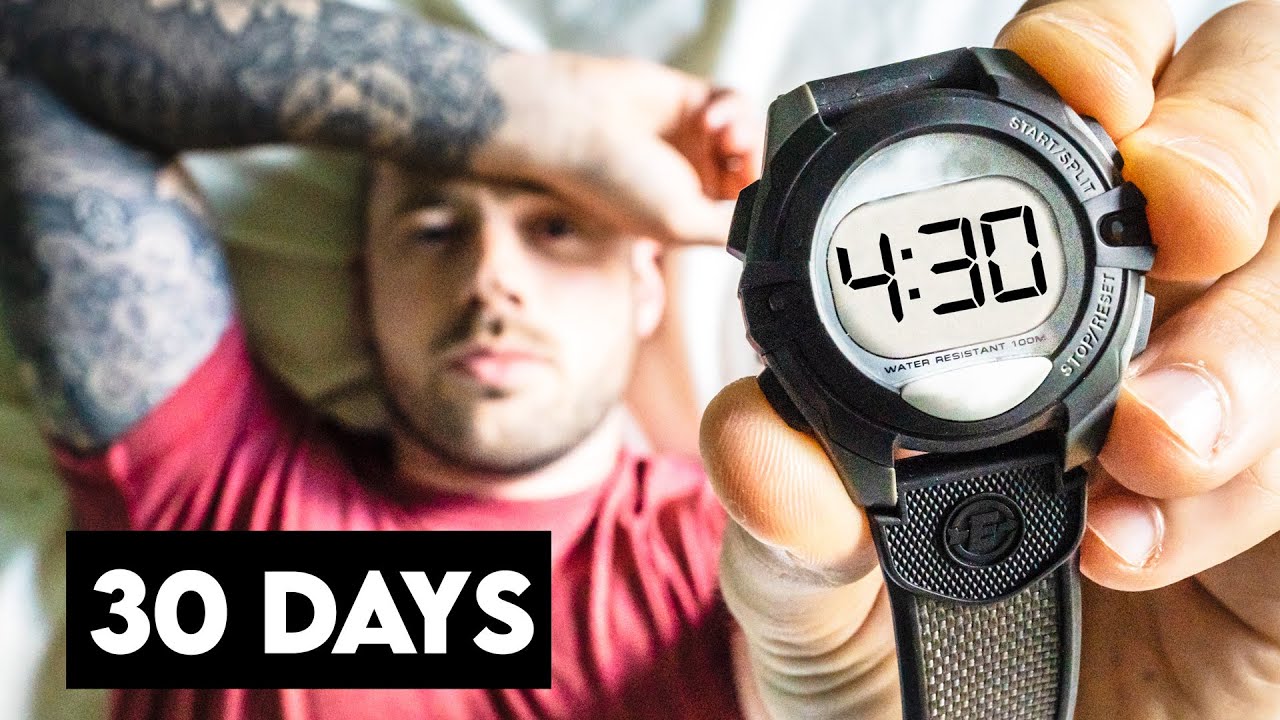I quit social media for 30 days
Summary
TLDRIn a bold experiment, the narrator embarks on a 30-day social media detox, discovering unexpected benefits along the way. By deleting social media apps and minimizing phone usage, they experience a significant reduction in distractions, leading to heightened productivity and clarity. Despite initial struggles with compulsive checking, the narrator finds that stepping away fosters deeper connections and a focus on quality content creation. Surprisingly, this break coincides with a surge in YouTube subscribers, challenging the notion that constant social media engagement is necessary for success. Ultimately, the experience highlights the value of prioritizing meaningful interactions over superficial online presence.
Takeaways
- 📱 American Millennials spend over three and a half hours daily on their phones, predominantly on social media.
- ❓ Stepping away from social media can lead to increased productivity, focus, and potential life changes.
- 🗓️ The speaker undertook a 30-day social media detox to explore the impacts on personal and business life.
- 🚫 To break the habit, the speaker deleted all social media apps and logged out of accounts, creating barriers to access.
- 🔍 The speaker realized the addiction wasn't just about content but the anticipation of interactions and potential engagement.
- ⏰ After a week, the compulsive need to check the phone diminished, and the speaker averaged just 23 minutes of screen time per day.
- 📉 Quitting social media helped identify and eliminate distractions, allowing for a reevaluation of priorities and values.
- ⬆️ During the detox, the speaker experienced significant growth in YouTube subscribers and increased Patreon support.
- 💡 Productivity improved not just in output but also in personal time management, allowing for more creative work and family time.
- 😌 After reconnecting, the speaker found they hadn't missed anything important, highlighting the illusion of necessity surrounding social media.
Q & A
What prompted the author to quit social media for 30 days?
-The author wanted to explore the benefits of stepping away from social media, questioning whether it would lead to increased productivity and focus, as well as how it might impact their content creation and audience engagement.
What measures did the author take to ensure they stayed off social media?
-The author deleted all social media apps from their phone, logged out of accounts on their computer, cleared their browsing history, and committed to leaving their phone in the bedroom while working.
What were some of the initial challenges the author faced during the detox?
-In the beginning, the author struggled with compulsive checking of their phone due to habit and anticipation of notifications, leading to a constant desire to check for messages or posts.
How did the author’s screen time change during the 30-day detox?
-The author’s average screen time dropped significantly from 98 minutes a day to just 23 minutes a day.
What impact did the social media detox have on the author’s YouTube channel?
-During the detox, the author experienced a substantial spike in YouTube subscribers, gaining over 124,000 subscribers, and their video 'A Day in the Life of a Minimalist' received 3 million views within ten days.
How did the author feel about the need for social media after the detox?
-Upon reconnecting, the author realized they didn't miss social media and found it difficult to see its benefits, suggesting that the fear of missing out had driven their previous habits.
What insights did the author gain about productivity during the detox?
-The author learned that productivity isn't just about output; it can also be about taking time off and spending quality moments with family, indicating a more balanced approach to work and personal life.
What does the author suggest about the relationship between social media and personal values?
-The author suggests that one should identify their values and priorities in life, and that social media often distracts from these priorities, potentially leading to time mismanagement.
What was one of the key lessons the author learned about social media's role in content creation?
-The author recognized that social media is a symptom of deeper needs rather than a necessity for growth, emphasizing that quality content and creativity are more important than frequent posting.
How did the author use Patreon in relation to their YouTube channel?
-The author uses Patreon to support their YouTube channel by providing exclusive content, allowing them to keep the channel advertisement-free and engage with supporters more directly.
Outlines

Cette section est réservée aux utilisateurs payants. Améliorez votre compte pour accéder à cette section.
Améliorer maintenantMindmap

Cette section est réservée aux utilisateurs payants. Améliorez votre compte pour accéder à cette section.
Améliorer maintenantKeywords

Cette section est réservée aux utilisateurs payants. Améliorez votre compte pour accéder à cette section.
Améliorer maintenantHighlights

Cette section est réservée aux utilisateurs payants. Améliorez votre compte pour accéder à cette section.
Améliorer maintenantTranscripts

Cette section est réservée aux utilisateurs payants. Améliorez votre compte pour accéder à cette section.
Améliorer maintenantVoir Plus de Vidéos Connexes

trying to cure my phone addiction! (a digital detox)

I Went Phoneless For a Week. It Changed My Life...

How Dopamine Detoxing Changed My Brain

I woke up at 4:30AM to end laziness forever

Puasa Dopamin atau Hiburan - reset otak, hidup kembali, kecanduan gadget

DOPAMINE DETOX | How To Take Back Control Over Your Life
5.0 / 5 (0 votes)
